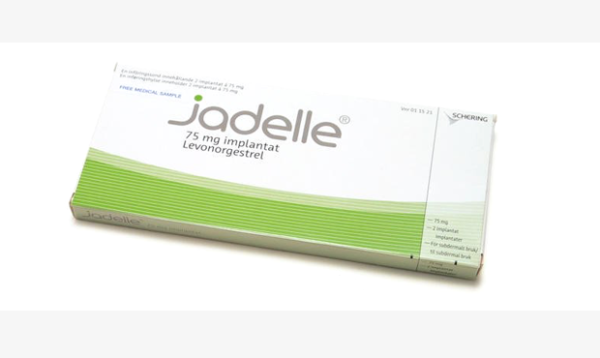Product Description

About Jadelle:
Jadelle is a contraceptive implant, used to prevent pregnancy. Contraceptive implants such as Jadelle are for long term (up to five years) use.
How it works
The implants contain a synthetic hormone, levonorgestrel, which is also one of the active ingredients used in many oral contraceptives. Immediately after the insertion of Jadelle implants, low doses of the hormone start to be released continuously into your body. Jadelle prevents pregnancy through a combination of mechanisms. The most important of these are inhibition of the egg release by stopping it maturing and changing the cervical mucus consistency, making it more difficult for sperm to reach the egg. Other mechanisms may also be involved. When Jadelle implants are removed, your fertility will resume.
There are actually lots of great things that come in hand when using Family planning methods. We’re talking benefits.
- Easy to use with the no touch technique.
- Easy insertion and removal process with no harm.
- Reduces cramps.
- Long lasting protection with less efforts.
Do not use Jadelle if:
• you have or have had a blood clot (in your legs, lungs or other parts of your body)
• you have or have had a liver tumour or liver disease as long as the liver function values have not returned to normal
• you have or are suspected of having cancer relating to sex hormones
• you have abnormal vaginal bleeding.
• Do not use this medicine if you are pregnant or you think you may be pregnant, it may affect your developing baby if you use Jadelle during pregnancy.
• Do not use this medicine after the expiry date printed on the pack or if the packaging is torn or shows signs of tampering. If it has expired or is damaged, return it to your pharmacist for disposal.
• If you are not sure whether you should start using Jadelle, talk to your doctor.
Do not use Jadelle if have an allergy to:
• any medicine containing levonorgestrel
• any of the ingredients listed at the end of this leaflet
Some of the symptoms of an allergic reaction may include:
• Shortness of breath
• Wheezing or difficulty breathing
• Swelling of the face, lips, tongue or other parts of the body
• Rash, itching or hives on the skin
No. Routine periodic visits are not necessary for implant users. Annual visits may be helpful for other preventive care.
2. Can implants be left permanently in a woman’s arm?
Leaving the implants in place beyond their effective lifespan is generally not recommended since the woman continues to be at risk of pregnancy. The implants themselves are not dangerous, but as the hormone levels in the implants drop, they become less effective.
3. Can implants cause cancer?
No. There is no risk of getting any cancer using implants.
4. How long does it take to become pregnant after the implants are removed?
Well, you can get pregnant soon when implants are stopped. Usually within a month. Fertility is regained immediately after they are removed. Some women may have to wait a few months to see their periods.
5. Do implants cause birth defects? Will the foetus be harmed if a woman accidentally becomes pregnant with implants in place?
No. They do not cause any birth defects and will not otherwise harm the foetus if a woman becomes pregnant while using implants or accidentally has implants inserted when she is already pregnant.
6. Can implants move around within a woman’s body or come out of her arm?
No. Implants do not move around in a woman’s body. The implants remain where they are inserted until they are removed. But it can happen if they are not inserted well or because of an infection where they were inserted.
7. Do implants increase the risk of ectopic pregnancy?
No. On the contrary, implants greatly reduce the risk of ectopic pregnancy. Ectopic pregnancies are extremely rare among implant users.
8. How soon can a breastfeeding woman start a progestin only method implant?
WHO guidance calls women to wait at least 6 weeks after childbirth to start a progestin-only contraceptive method
9. Should heavy women avoid implants?
No. These women should know, however, that they need to have Implants replaced sooner to maintain a high level of protection from pregnancy. Such women should have their implants replaced, if they wish, after 5 years.
10. What should be done if an implant user has an ovarian cyst?
They may cause some mild abdominal pain, but they only require treatment if they grow abnormally large, twist, or burst. These follicles usually go away without treatment.
11. Can a woman work soon after having implants inserted?
Yes. A woman can do her usual work immediately after leaving the clinic as long as she does not bump the insertion site or get it wet.
12. Must a woman have a pelvic examination before she can have implants inserted?
No. it is not necessary.

